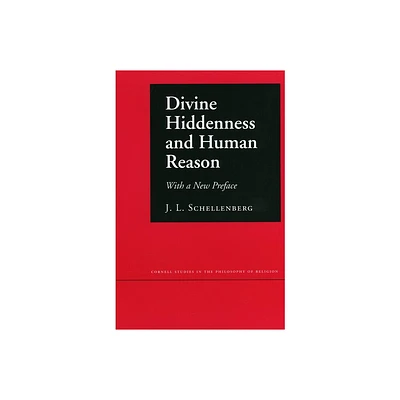Home
Philosophy and the Human Paradox: Essays on Reason, Truth Identity
Loading Inventory...
Barnes and Noble
Philosophy and the Human Paradox: Essays on Reason, Truth Identity
Current price: $54.99


Barnes and Noble
Philosophy and the Human Paradox: Essays on Reason, Truth Identity
Current price: $54.99
Loading Inventory...
Size: Paperback
*Product Information may vary - to confirm product availability, pricing, and additional information please contact Barnes and Noble
This book collects essays by Alan Montefiore on the role philosophy plays in the formation of the self, and how philosophical questions regarding the nature of reason, truth, and identity inform ethics and politics. It offers a comprehensive overview of Montefiore’s influential, non-dogmatic philosophical voice.
Throughout his 70-year career, Montefiore sought to bridge the analytic/continental divide and develop a new way of thinking about philosophy. He defines philosophy as the search for a higher-order understanding of whatever the situation or activity in which one may be involved or engaged, an understanding which may be achieved and expressed by and in a variety of different forms of philosophical persuasion, and which may serve to shed new light on particular problems. The book’s essays, half of which are previously unpublished, are divided into two thematic sections. The first focuses on the nature of philosophy, while the second addresses the relationship between philosophy and moral and political responsibilities.
Philosophy and the Human Paradox
will be of interest to philosophers and students who work on ethics, Kantian and post-Kantian continental philosophy, and political philosophy.
Throughout his 70-year career, Montefiore sought to bridge the analytic/continental divide and develop a new way of thinking about philosophy. He defines philosophy as the search for a higher-order understanding of whatever the situation or activity in which one may be involved or engaged, an understanding which may be achieved and expressed by and in a variety of different forms of philosophical persuasion, and which may serve to shed new light on particular problems. The book’s essays, half of which are previously unpublished, are divided into two thematic sections. The first focuses on the nature of philosophy, while the second addresses the relationship between philosophy and moral and political responsibilities.
Philosophy and the Human Paradox
will be of interest to philosophers and students who work on ethics, Kantian and post-Kantian continental philosophy, and political philosophy.


















